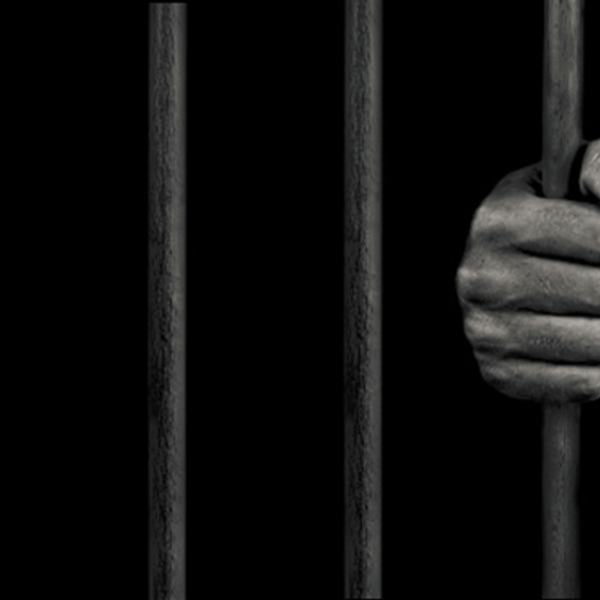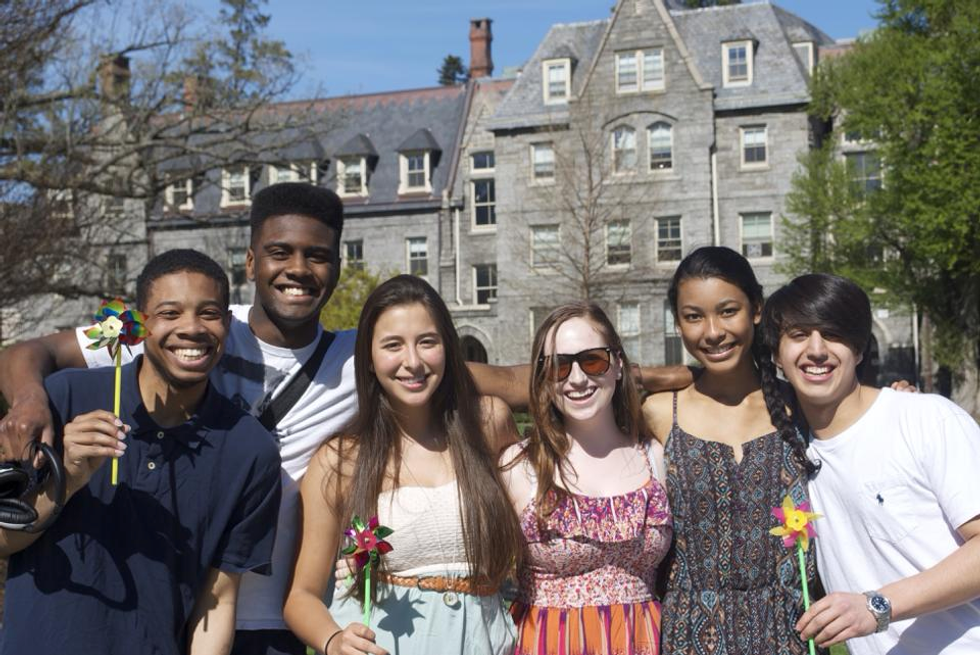I come from an international background. I was born in Baltimore, but I moved to Dhaka – Bangladesh when I was two, and that’s where I grew up for nine years in an international expat community. I went to a lower school where my principal was British, my music teacher was Sri Lankan, and my coach was Nigerian. Most of my friends were not Americans. Two of my best friends, Jens and Fleur, were from the Netherlands and moved to Iran when I was about seven. My other best friend, Arthur, was British and moved to a boarding school in England when I was nine or ten, while the rest of his family moved to Kenya a couple of years later. Then I had a lot of friends from India, Pakistan, and Bangladesh; friends from other countries such as Jordan, Trinidad & Tobago, and Uganda; and I had my American friends too, but only the Americans who could look past my skin color.
My international upbringing is central and paramount to my identity, because it has shaped who I am more than anything else. It’s also the basis of my perspective, a perspective that sees the world and its diversity for its cooperative unity rather than for its exclusive divisions. I lost sight of this perspective when I moved back to Baltimore in middle school, when I was confronted by the American obsession with race. I was faced with constraining social expectations based on racial stereotypes as a consequence of being black, none of which I met when I first moved back. These expectations included what music I could listen to, how I was supposed to speak, and what interests I could have in order to be accepted by my peers regardless of their race. For a while I tried to fit these expectations even at the expense of my personal integrity, but during high school an experience reminded me of my international background that made me who I am.
For the summer before my junior year of high school, I studied abroad in Russia on a program with a group of Americans where nobody else was black. While I was there, I was told by our program directors that we would be ambassadors of the United States for the Russians we met, but I discovered that I was also an ambassador of Black Americans. Because most of the Russians I met had never met a Black American before meeting me, I was once again free from racial expectations, and that's when I stopped trying to fit these groundless expectations based on race, and when I recovered my initial perspective that saw the world’s diversity with unity rather than division. Ever since, I’ve been reminded of my perspective every time I meet someone, because I’m reminded that I have a relatively unique experience, and that I have been exposed to a variety of different experiences, each of which I can find some common ground with, but none of which I feel completely at home with. Even though it used to be a burden when I was confronted about my race, I see my unique experience today as a blessing and a privilege that I’m very grateful to have.
Today, I go to a small liberal arts college where my peers have a very strong passion for social justice regarding identity issues. I agree with most, if not all of the causes for social justice my peers and the rest of my generation champions. However, something I’ve noticed amongst a lot of activists on social media is the need to categorize and label everything, especially on issues regarding race. I also discovered if someone mislabels one thing or says the wrong words, especially as a person of color, they are immediately attacked for what they said.
On social media, I engaged in a conversation regarding Rachel Dolezal, and whether or not she can legitimately identify as black. When I shared what I had to say, I made the argument that race is not real, and that we are one human race, because that’s what my experience has taught me. I first noted that biologically, race does not exist. There is nothing in science that can define racial groups between humans. And thus I argued that there is nothing real that prevents Dolezal from identifying as black. Needless to say, I believe her whole situation is ridiculous, because the idea of race is ridiculous. At the same time though, I clarified that despite my belief that race does not exist, I still believe that racism – the consequence of people believing in race – absolutely exists and it has serious consequences, such as the Charleston Massacre, the War on Drugs, police relations with black communities throughout America, and the continued disenfranchisement of those communities.
In response, a few social media activists at my college attacked my statement. From their perspective, saying we are one human race does a lot of disservice to people of color who are mistreated, silenced, and even killed based on this idea I claimed to be “not real”. While this idea might not be based on anything real, it has real consequences and our society is structured largely by race. They said it’s also a useless argument for social justice causes, and should not be a point to emphasize at a time when police discriminate against people based on race and after a tragedy when nine people were killed in a church because of their race. The other points they made are that race is a source of pride and strength for many people of color, and that race will be relevant until society is no longer structured by race.
I agree with a lot of points they made regarding racism, but I still stand by my statement. The reason I argued that we are one human race and that race does not exist, is because from experience I have learned that the idea of race is groundless, disingenuous, and ultimately destructive on both an individual and a societal basis. Unlike other classifications of identity, such as ethnicity and nationality, there is no substance to racial identity. While one might argue that race carries history and collective experience, and even a cultural aspect to it as well, I would disagree. The idea of race does not stem for any common heritage, history, culture, or identity, and each racial category carries a diverse array of cultures, identities, histories, and experiences. Rather, the idea of race stems from justifying oppression.
Race is an idea that was created in order to justify doing terrible things to people and treating them like property, because nothing justifies that. It was created to devalue the lives of the oppressed, who happened in this case to have more melanin in their skin and whose ancestors very recently in human history came from a certain part of the world. It’s the idea that validated the actions of those like the terrorist in South Carolina who murdered nine people in cold blood at a house of worship, because he also believed in this idea. And I’ve learned since moving back to America that race does nothing, except create needless divisions between people that allow for the social expectations I faced based on racial stereotypes, continued disenfranchisement and discrimination of entire communities, and even violence against these communities.
Every country has a social construct to create societal divisions that allow for discrimination. America’s is race, and Americans are very obsessed with race, much more than anyone else from what I’ve seen. Many Americans including social justice activists talk about race and always need to define it, while most other Americans who are uncomfortable with conversations about racism are silent about race, except when their racial expectations are not met, but otherwise they continue to act silently or at least subconsciously as if race exists. Unfortunately in America, those who deny racism exists have abused the idea that we are one human race as a way to deter conversations about racism, but anyone who truly believes that we are one human race would see without any difficulty that America has a serious problem with racism that needs to be resolved.
From my background and my experience, I’ve learned that unity is the greatest threat to racism and all forms of bigotry. Engaging with people from entirely different countries, cultures, and ethnic backgrounds creates peace, sympathy, and understanding between these seemingly different people, and they no longer see each other as inherently any different. That's the root of my problem with these social justice activists needing to label and distinguish everyone, and silence anyone who disagrees with their labeling. I’m on their side as far their goals are concerned, but my perspective does not agree with their methods of fighting social injustice.
The only way we can overcome racism is by delegitimizing the idea of race. There is no other way to do it, because racism is based on people believing race exists. And as long as people believe race is a legitimate social construct, racism will endure. So therefore, as long as these activists talk about race, legitimize the societal divisions based on race, and and try to silence anyone who says these divisions don’t exist, they will not overcome racism. Instead, they will perpetuate it.
One thing that my international background has proved to me is that people are inherently sympathetic to those who they can relate to, no matter where they’re from or any historical conflict between their respective identities, such as my Indian and Pakistani friends. That’s why I believe that when people no longer see each other as any different from one another and when the idea that they are the same is reinforced, they question why others who they no longer see as any different from themselves are being mistreated and discriminated against. When they do, they support the discriminated by joining their fight against that social injustice. But that never happens when the idea that people belong to these exclusive racial groups and are thus inherently different from one another keeps getting reinforced.
All of these reasons are why I believe that the time is now and always as long as racism exists to delegitimize race by clarifying that race is not real and we should not treat race like it’s a real thing, and that’s what will ultimately defeat racism.





















